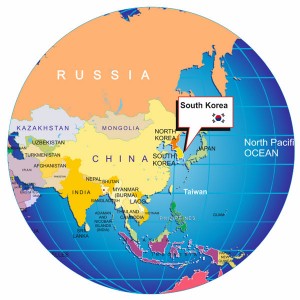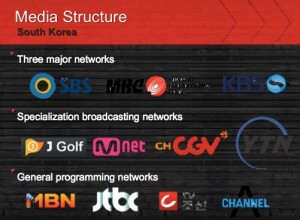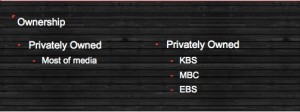Geographical Location and History
South korea is located in the Eurasian continent. The Korean Peninsula border on China and Russia on North Korean side. Because of geographical position, Korea suffered aggression by foreign powers before. Invasion of Japanese imperialism is one of example. Japan controlled Korea during 35 years. Because of this historical background, as we watched about Ted video about China in class, from there we heard Chinese think they consisted of same race. Likewise Korean think like China and it is true before pre-modern era. Korean shows defensive attitude to other countries people and culture. It is interesting part when we see the current media and culture.
Language
Korea has its own language. Because of Hallyu, which is Korean culture export to foreign countries, it inspires Korean language in the world. The latest Korean language test, which is Topic, recorded the highest participants ever. Also, even Cuba is not have any diplomatic relations, but there were also candidates for Korean Language Exam.
Political & Economical part
Korea also libertarianism like the U.S., but it constructed multi-parties system than two-parties system. Korea and the U.S. is ally and there is lots of connection between two countries from whole society part. FTA(Free Trade Agreement) is one example for them. From 2012 March 15th the South Korea and United States Free Trade Agreement took effect. It influence lots of social part, and media part as well. From media part, noticeable issue is screen quota. The U.S. demand abolishing screen quota, but people who work in Korean media market want to keep screen quota. They thought if the scree quota is abolished, Hollywood movies would occupy whole movie market in Korea. As the result Korean government accepted both opinions, and reduce screen quota rate.
Media Structure
South Korea, there are many types of broadcasting networks. There are three major broadcasting networks, specialization broadcasting networks, and general programming networks.
Three major broadcasting networks is main channel in South Korea which are KBS, MBC, SBS like NBC, ABC, and CBS in the US. Specialization broadcasting networks broadcast their own specialization part such as music like MTV in the US, news like CNN, Sports, and movie as well. General programming Networks do not have much history. It was just launched since December 2011. Special characteristic for Channels of General Programing networks are that Compare with the major three networks, it can be broadcast all 24 hours and Compare with specialization broadcasting channels, it broadcast all kinds of contents. Also, it is operated by four of newspaper companies.
General Programing networks and Specialization networks are regular model of libertarianism and commercialism because they are owned by privately. However, in South Korea, there are not only privately owned media networks, but also there are government owned media networks. KBS and MBC are representative networks for public media model in South Korea. All of newspaper companies are owned privately. However, television networks are not. Because the electronic signal for broadcast are regard as public goods. On the other hand, newspaper companies can be founded with facilities for printing. KBS is literally Korean Broadcasting System. In Korean, its name includes the meaning, which is public corporation. MBC is middle of public owned and privately owned system. Because 70%of its stocks are owned by Foundation for Broadcast Culture. For this, Directors of Foundation for Broadcast culture secure a nomination by Korea Communication Commission, which is one of government organ. In other worlds, president of Korea can be influence to MBC. South Korea, it theoretically claims to support libertarianism, but in the real world its media structure is not completely free from government.
Reference
https://www.princeton.edu/~achaney/tmve/wiki100k/docs/History_of_South_Korea.html
http://www.bbc.com/news/world-asia-pacific-15291415
South Korea Media Research Institute, comp. Mass Communication Dictionary. N.p.: n.p., n.d. Print.
Doosan Donga, comp. Doopedia. Vol. 30. South Korea: n.p., 1984-. Print.





